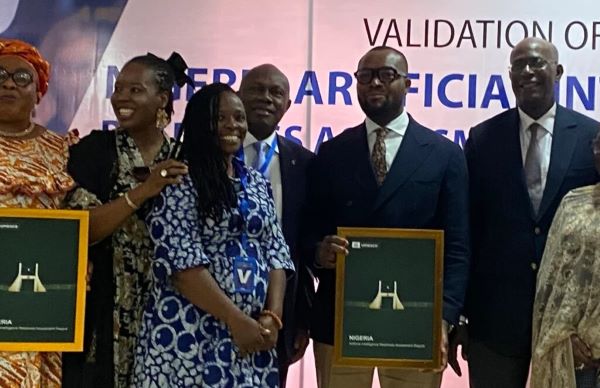The United Nations (UN) has reaffirmed its commitment to strengthening Artificial Intelligence (AI) operations in Nigeria to drive inclusive and sustainable growth.
UN Resident and Humanitarian Coordinator, Mr. Mohamed Fall, made this known on Thursday in Abuja during the validation of the Nigeria AI Readiness Assessment Report (NAIRAR), organised by UNESCO Abuja office with support from the European Union.
Fall explained that NAIRAR, a key outcome of UNESCO’s Readiness Assessment Methodology (RAM), is designed to promote the implementation of the UNESCO Recommendation on the Ethics of AI adopted by 193 Member States in 2021, while also advancing Nigeria’s AI ecosystem.
“Today’s validation is not an end. It is a beginning. We must act on the findings of this report, working together across ministries, institutions and communities to implement its recommendations. AI must grow in ways that protect rights, promote equality and serve development for all,” he said.
He noted that AI is already transforming economies, education, healthcare and social services, creating opportunities for young people while helping nations achieve the SDGs. However, he stressed that AI must be guided by strong ethical values to serve everyone equally.
Highlighting Nigeria’s progress, Fall cited the National AI Strategy, the Three Million Technical Talent Programme and the Nigeria AI Research Scheme as bold initiatives positioning the country as a continental leader in AI development.
Speaking at the event, Minister of Labour and Employment, Dr. Muhammad Dingyadi, commended UNESCO and the EU for supporting the initiative. He described AI as a driver of global transformation that could accelerate productivity, improve service delivery, and create new growth sectors for Nigeria’s youthful digital population.
He cautioned, however, that automation and AI-enabled systems could displace low-skill jobs if not properly managed, warning that this could deepen inequalities. “The AI Readiness Assessment is not merely a technical report, but a strategic guide for the future of work in Nigeria,” he said.
Minister of Communications, Innovation and Digital Economy, Dr. Bosun Tijani, also described the report as timely, noting that rapid technological change is reshaping societies in ways many people do not yet realise.
Head of the Civil Service of the Federation, Esther Wilson-Jack—represented by Mr. Faruk Yabo, Permanent Secretary, Federal Ministry of Solid Minerals Development—announced plans to train at least 5,000 civil servants in AI applications to prepare the public service for future challenges.
The event brought together senior government officials, academics, civil society leaders and private sector stakeholders. It featured expert presentations, key findings and recommendations to guide Nigeria’s AI future.
Attorney-General of the Federation and Minister of Justice, Lateef Fagbemi, SAN, also delivered a goodwill message at the event.


